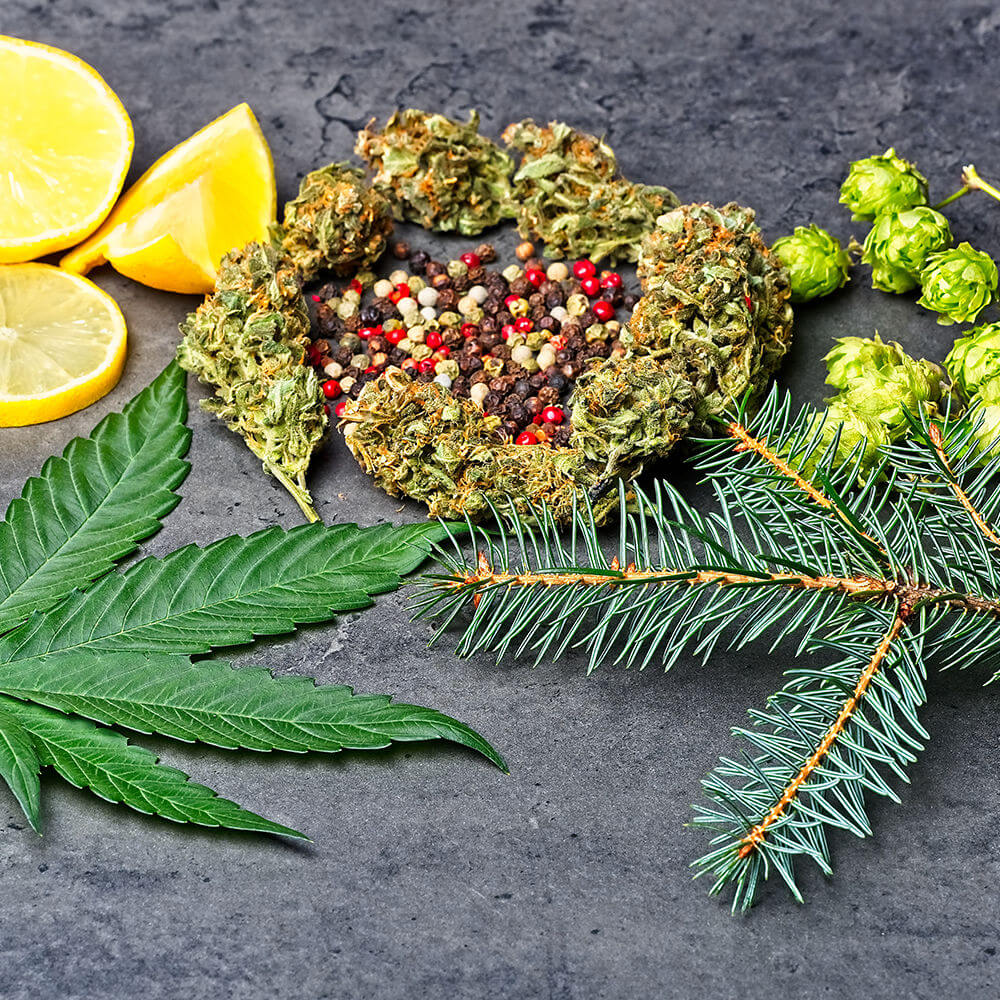Cannabis has circulated throughout several evolutions of mankind, giving us a profound view of the unique species of plant each time history repeats itself. It is a plant that has grown in the wild for centuries and holds key compounds, known as cannabinoids. These cannabinoids utilize receptors in the body to deliver a multitude of benefits and effects on both the mind and body. Out of more than one hundred cannabinoids that naturally occur in the plant, Delta 8 THC is among the four most common.

What Is Delta 8 THC?
There are several definitions of the unique compound that exist, both in a standard and scientific form. What it ultimately comes down to is that Delta 8 THC is yet another chemical compound that naturally occurs in the cannabis plant. One of the disadvantages of Delta 8 THC is that unlike Delta 9 (Marijuana) and CBD (Hemp), it occurs in very small concentrations. However, like its more popular sister, Delta 9 THC, Delta 8 packs a punch with its many advantages and reduced psychoactive power.
Delta 8 THC is an isomer of cannabidiol (CBD), which means it has the same chemical formula of CBD but different structures, chemical, and pharmacological properties. Believe it or not but it is derived from both hemp and CBD, and happens to be a very effective psychoactive cannabinoid. According to the National Cancer Institute, Delta 8 is described as “an analogue of tetrahydrocannabinol (THC) with antiemetic, anxiolytic, appetite-stimulating, analgesic and neuroprotective properties.”
The History of Delta 8 THC
While Delta 8 THC is not as well known as its infamous relative, Delta 9 THC, researchers are working tirelessly to discover both the benefits and effects that Delta 8 THC offers. Below is a brief timeline sharing some of the most prominent research that has been conducted.
What Are The Benefits of Delta 8 THC?
As unfortunate as it is to share, clinical studies have always prioritized Delta 9 THC. That changed drastically when Industrial Hemp became federally legal, causing a shift to further discover the benefits of CBD. Even before then, CBD started gaining some of the spotlight due to the overwhelming amount of concentrate found in a single hemp plant, and the potential benefits it could offer. Delta 8 THC has always taken the back burner in the world of both popularity and research, that is until now.
- We like to believe that Delta 8 is the middle ground between CBD and Delta 9 THC. It provides less potent psychoactive effects, yet offers a multitude of medicinal benefits due to its binding to the CB1 receptor as well as relation to the CB2 receptor as well.
- Delta 8 THC is a more practical and useful substitute for Delta 9 THC for a handful of reasons, including it being less potent, its psychoactive effects are more tolerable for recreational use, and it is legal in nearly every state since it is hemp-derived and as long as the final product contains less than 0.3% Delta 9 THC.
- Delta 8 is an amazing psychoactive compound that is perfect for recreational use. It offers a more clear-headed high and not the “stoned” feeling you receive from Delta 9.
What Are The Effects of Delta 8 THC?
The effects that Delta 8 offers is why many find this cannabinoid so valuable. Its potency is low, presenting lower psychoactive effects. If you are wondering if Delta 8 will get you high, we can certainly share that it will. The high, however, is more relaxed, more clear-headed, and less of a sedative effect.
The effects, however, can differ from person to person. Our internal Endocannabinoid System (ECS) receptors respond differently, therefore the effects you gain from Delta 8 THC may be slightly different than how it affects another person. The best way to describe its effects is to think about gaining the most prominent parts of Delta 9 THC and CBD and putting them together as one. It can be experienced in a variety of ways. With low doses you can experience a more motivating and energizing high, while at higher doses you may experience its subtle sedative effects.
Delta 8 THC Onset Effects
When you vaporize and inhale Delta 8 THC, the vapor absorbs into the bloodstream much faster than consumed orally, therefore you can feel its effects instant and up to 20 minutes, though user reports share an average of roughly 6 minutes. The effects can last up to 5 hours, though the effects do start to decrease between 30 minutes to 2.4 hours after the initial onset of the effects.
When you consume Delta 8 THC orally by means of a Delta 8 gummy, spray, or oil, the effects can take up to 45 minutes to 4 hours, and the effects can last up to 12 hours. When combined with 20% or more of CBD, you can expect delayed effects for up to 20 minutes longer.
Will I Pass A Drug Test Using Delta 8 THC?
Though passing a drug test isn’t a problem when using CBD, it is with Delta 8 THC. You will not pass a drug test using Delta 8 THC. The problem is that the metabolites from Delta 8 THC are either the same or far too similar to its relative, Delta 9 THC. This will cause you to test positive for Delta 9 THC on a drug test. The tests cannot distinguish the difference between the two and most testing facilities have not had a reason to calibrate their equipment to distinguish a difference between the two, if any.
The Legality of Delta 8 THC
In 1970, hemp was classified as an illegal Schedule 1 drug by the Controlled Substances Act. Fast forward to 2018, after many failed attempts to pass hemp specific laws, President Trump signed, what is known as, the 2018 Farm Bill into law on December 20, 2018. With this amendment in place, the hemp plant and any of its seeds and derivatives were removed from the Control Substances Act.
Within the 2018 Farm Bill, it states that all derivatives, isomers, and cannabinoids in hemp are legal, with the exception that the final product contains less than 0.3% Delta-9-THC. This makes Delta-8-THC, which is an isomer of CBD and a derivative of hemp and CBD, completely legal in the United States. However, there are some states in the US that specifically exclude Delta-8 or require the final product to contain less than 0.3% total THC.
The Difference Between Delta 8 THC and Delta 9 THC
The difference between Delta 8 THC and Delta 9 THC is that D8 targets both the CB1 and CB2 receptors, whereas Delta 9 only targets the CB1 receptor in the endocannabinoid system. While Delta 8 and Delta 9 both contain double bonds, the difference in them is the location of that double bond. Delta 8 is located on the 8th carbon chain and Delta 9 located on the 9th carbon chain. Since both Delta 8 and Delta 9 bind to the CB1 receptor, they can both have psychotropic effects, with Delta 8 having less potency than Delta 9.
- Delta 8 is stable, which makes it a more preferable medicinal compound.
- Delta 8 has a longer shelf life than Delta 9.
- Due to Delta 8 THC’s stability, it does not oxidize as easily as Delta 9.
- Delta 8 has less potency than Delta 9.
Delta 8 THC Safety and Warnings
The main safety concern for Delta 8 THC is that it needs to be created correctly in a lab by only a trained chemist who can handle the plant and extraction process properly. Even though there is no known overdose limit with Delta 8, consuming more than the recommended dose can cause extreme paranoia and anxiety in some individuals. The most prominent warning is that Delta 8 has yet to be explored long-term, therefore there isn’t any data that has been collected to share how it affects someone long-term, unlike its relative Delta 9, which has undergone extensive research and contains an extraordinary amount of data on both immediate and long-term use.


